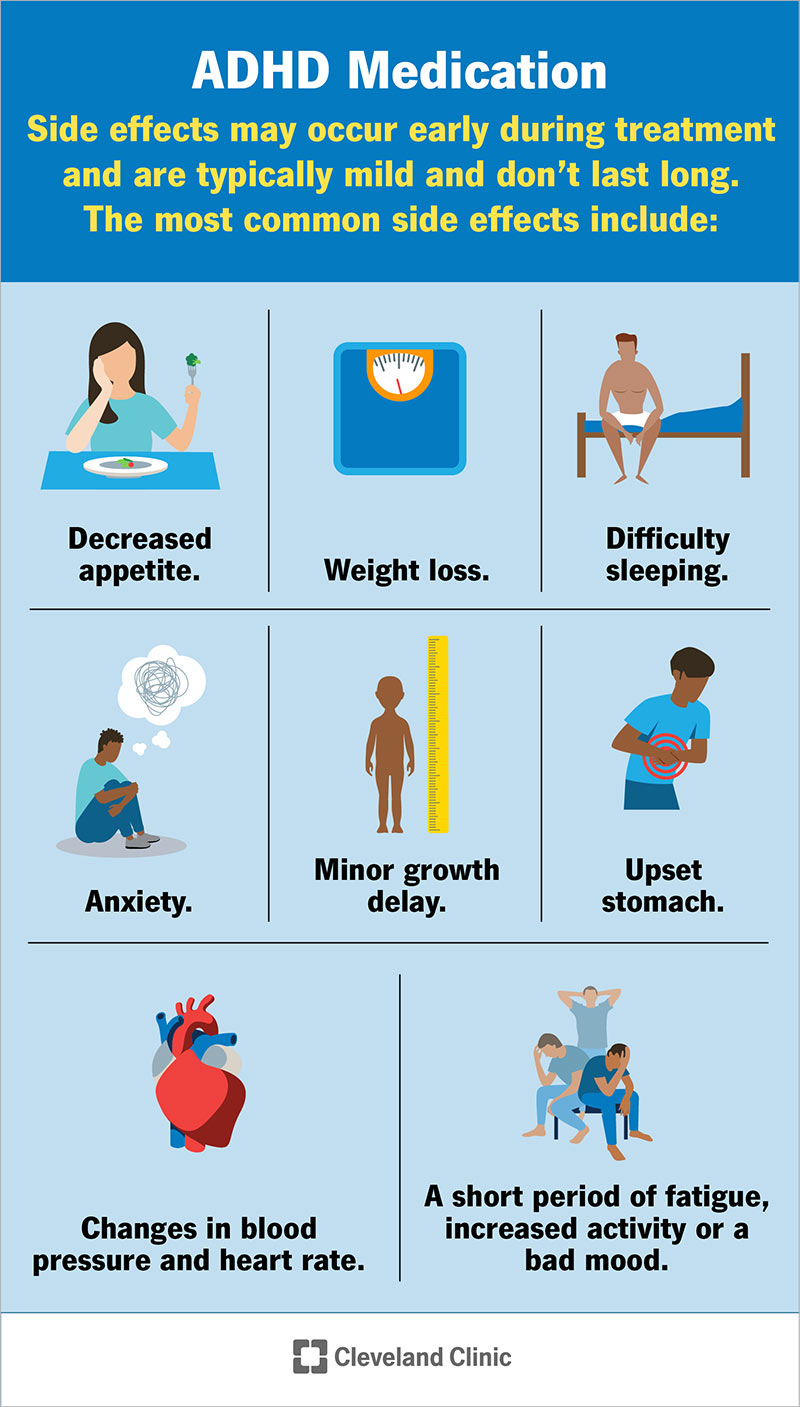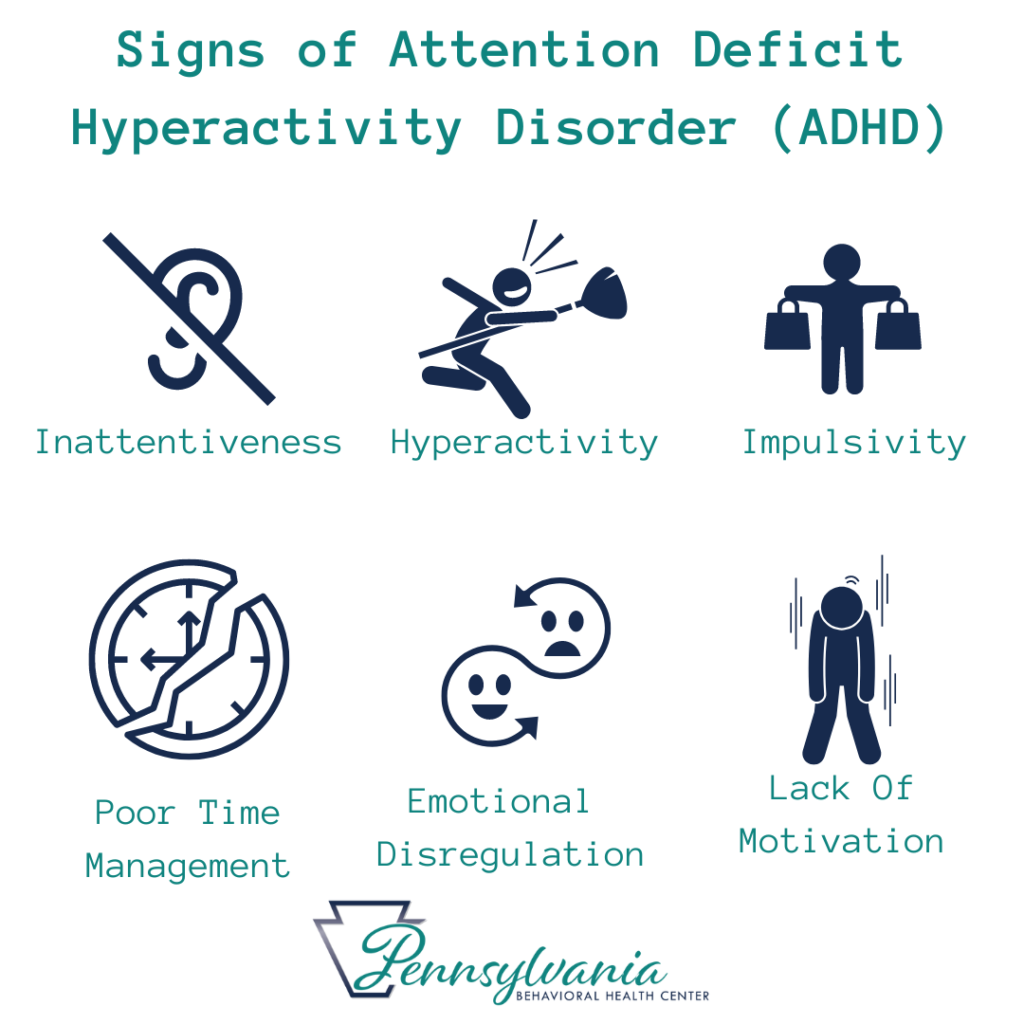Checking Out Reliable ADHD Therapy Choices for All Ages
The complexities of Attention Deficit Hyperactivity Disorder (ADHD) existing one-of-a-kind difficulties across different age groups, necessitating an extensive exploration of effective therapy options. A combination of behavioral therapies, pharmacological treatments, and way of living adjustments has revealed assurance in resolving the varied requirements of individuals with ADHD.
Recognizing ADHD and Its Effect
Attention-Deficit/Hyperactivity Condition (ADHD) is a neurodevelopmental problem defined by consistent patterns of inattention, attention deficit disorder, and impulsivity that can dramatically influence different aspects of a person's life. It commonly shows up in youth, although symptoms can persist right into their adult years. The core signs and symptoms of ADHD can disrupt instructional efficiency, hinder social communications, and make complex work endeavors.
People with ADHD commonly struggle with keeping emphasis on tasks, organizing tasks, and following up on guidelines, which can result in scholastic underachievement (Depression Treatment). In social contexts, impulsivity might cause difficulties in developing and sustaining relationships, as people may disrupt conversations or make hasty choices without considering repercussions
In addition, ADHD can co-occur with other mental health and wellness problems, such as anxiousness and anxiety, additionally making complex diagnosis and treatment. The irregularity in sign discussion indicates that ADHD can affect individuals in a different way, demanding an individualized strategy to monitoring. Recognizing ADHD's diverse influence is essential for establishing effective approaches that sustain people in navigating day-to-day challenges and achieving their capacity. Comprehensive understanding of ADHD's nature and effects lays the foundation for discovering ideal therapy alternatives customized per person's demands.
Behavioral Therapies for ADHD
Various behavior therapies have been developed to effectively resolve the difficulties connected with ADHD, concentrating on modifying certain habits and fostering necessary skills. Amongst the most identified strategies are cognitive-behavioral treatment (CBT), parent training, and social abilities training.
CBT aids individuals identify and transform unfavorable idea patterns and habits, advertising a more favorable overview and improved self-regulation. This therapy usually includes practical approaches for handling impulsivity and improving company. Parent training programs equip caretakers by equipping them with techniques to enhance positive actions and set regular borders, which can be especially useful for youngsters with ADHD.
Social skills training is an additional important part, teaching people with ADHD how to engage efficiently with peers - Depression Treatment. This strategy frequently involves role-playing and comments to improve interaction, collaboration, and conflict resolution skills
Including these behavior modifications right into an extensive therapy strategy can significantly improve working and lifestyle for people with ADHD. Ultimately, the efficiency of these treatments depends on tailored techniques that consider the distinct needs of each individual, consequently promoting durability and flexibility in every day life.
Medicine Options Available
For several people with ADHD, medication can play a significant function in handling signs and symptoms and boosting overall functioning. Both main classifications of drugs suggested for ADHD are stimulants and non-stimulants.
Energizers, such as methylphenidate and amphetamine-based drugs, are one of the most generally used treatments. These drugs work by increasing the levels of neurotransmitters, particularly dopamine and norepinephrine, in the brain, which helps improve attention and decrease impulsivity and hyperactivity. They typically produce fast results, making them a preferred option for several people.

It is essential for doctor to perform a complete analysis to determine the most suitable medicine based on private requirements, case history, and prospective side impacts. Normal follow-up and surveillance are also critical to ensure the efficiency of the selected treatment and to make any required adjustments.
Lifestyle Changes to Consider
Taking care of ADHD effectively expands past medicine, as way of life changes can considerably enhance overall health and signs and symptom control. Integrating structured routines is critical; regular routines assist individuals with ADHD handle their time successfully and decrease feelings of bewilder.
Routine physical activity is another vital element. Exercise not just aids to enhance focus yet likewise boosts state of mind and minimizes stress and anxiety levels. Tasks such as yoga exercise or team sports can be specifically helpful, promoting both physical conditioning and social communication.
Nutrition additionally plays a critical role. Depression Treatment. A well balanced diet abundant in omega-3 fatty acids, entire grains, and lean proteins can add to improved emphasis and cognitive function. Restricting my review here sugar and processed foods is a good idea, as these can intensify hyperactivity and impulsivity
Rest hygiene is important for taking care of ADHD symptoms. Developing a normal sleep routine and creating a relaxing setting can improve sleep high quality, causing far better focus and psychological law.
Alternative and Holistic Methods
Alternate and all natural approaches to ADHD article treatment provide a diverse variety of alternatives that complement traditional techniques. These methods usually concentrate on way of living modifications, dietary interventions, and therapeutic practices that aim to boost total health while addressing ADHD signs.

Mindfulness and behavior modifications are also acquiring traction as alternative treatments. Practices such as yoga exercise, reflection, and cognitive-behavioral treatment can grow self-regulation and enhance attention. These methods support emotional durability, which is especially valuable for people with ADHD.
Herbal supplements, such as ginkgo biloba and ginseng, are sometimes explored; nevertheless, it is important to get in touch with medical care specialists prior to including these right into treatment strategies. While choice and holistic strategies can supply important support, they ought to ideally be used in conjunction with evidence-based treatments to achieve ideal results love depression for managing ADHD across all ages.
Conclusion
In summary, effective ADHD therapy demands an extensive method that includes behavioral treatments, medicine, way of life modifications, and all natural approaches. Tailored interventions can considerably enhance people' working and quality of life, while appropriate drug makes sure ideal sign administration. Embracing structured regimens, engaging in normal physical activity, and practicing mindfulness can enhance emotional guideline and interest. This complex approach highlights the importance of customized care in resolving the diverse demands of individuals with ADHD throughout any age teams.